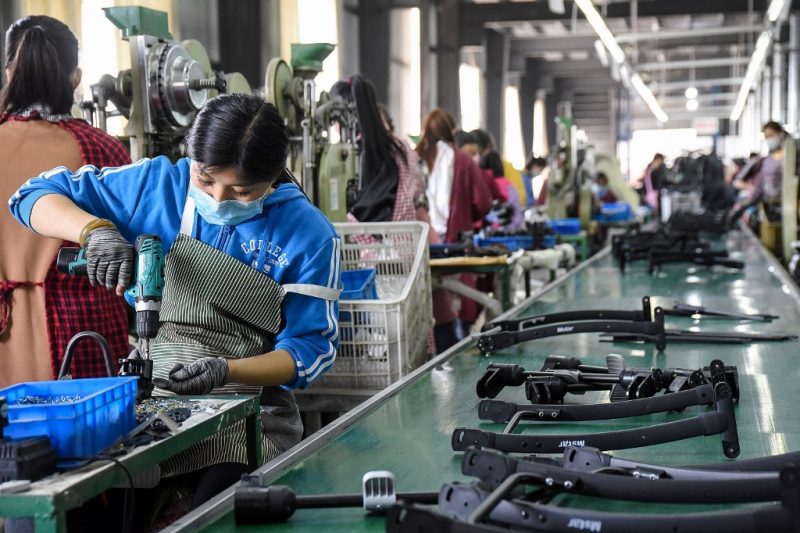China’s manufacturing activity fell for a fifth straight month in August amid weak domestic and global demand, an official survey showed on Thursday.
But new orders reverted to expansion for the first time over that period, with factory owners indicating producer prices had improved for the first time in seven months.
However, the country’s vast services sector continued to trend downwards.
The official purchasing managers’ index (PMI) rose to 49.7 from 49.3 in July, according to the National Bureau of Statistics, staying below the 50-point level demarcating contraction from expansion. The reading was above a forecast of 49.4.
ALSO SEE: Country Garden Voices ‘Deep Remorse’ for $6.7bn First Half Loss
Japan, Korea also report big declines in output
The PMI data is the first clue about how the world’s second-largest economy fared in August, following a torrid run of trade, factory and retail data in July. But, conditions did not materially worsen, even though the survey showed factories under persistent pressure.
China’s major manufacturing rivals in the region Japan and South Korea also reported sharp declines in output on Thursday.
“It’s too early to tell, but today’s print suggests that a sequential uptick in growth activity in the third quarter could still be possible,” Louise Loo, senior economist with Oxford Economics, said.
“Particularly if incoming stimulus starts feeding through to the economy.”
The world’s second-largest economy risks missing Beijing’s annual growth target of around 5% as officials wrestle with a worsening property slump, weak consumer spending and tumbling credit growth, leading major banks to downgrade their growth forecasts for the year.
Over the weekend, China announced a halving in stock-trading stamp duties, the first cut to the tax since 2008, and on Friday approved guidelines for affordable housing to improve access to first-home mortgages.
Some Chinese state-owned banks will also soon lower interest rates on existing mortgages, although analysts anticipate home prices will show no growth this year.
Mounting debt risks
The fresh moves came after a raft of measures aimed at reviving big-ticket purchases, notably of new-energy vehicles. Still, many analysts see only a slim chance for any drastic stimulus amid concerns over mounting debt risks.
On Wednesday, Pan Gongsheng, governor of the People’s Bank of China, told a meeting with banks and private firms that China will unblock financing channels of stocks, bonds and loans for private enterprises and guide institutional investors to buy their bonds.
Policymakers remain under pressure to boost domestic demand as the global economy continues to slow.
Higher interest rates and inflation in the United States, Europe and other major export markets are still crimping demand for Chinese goods. The new export orders sub-index contracted for a sixth straight month.
“Further economic measures may be needed to shore up growth,” Frederic Neumann, chief Asia economist and co-head of Global Research Asia at HSBC, said.
“Especially in an environment where new export orders continue to contract due to weak global demand, manufacturers will need to rely on domestic demand to make up the shortfall.”
Data on service sector, building also down
The non-manufacturing PMI, which incorporates sub-indexes for service sector activity and construction, fell to 51.0 from July’s 51.5, led by the continuing fall in services activity, while the composite PMI, including both manufacturing and non-manufacturing activity, rose to 51.3 from 51.1.
“Today’s data shows that… the strengthening of the policy measures is gradually offsetting the short-term factors that have disrupted the consolidation and recovery of China’s economy,” Bruce Pang, chief economist at Jones Lang Lasalle, said.
Going forward, “the actual implementation and effectiveness of policy support will be the key indicator to watch,” he added.
- Reuters with additional editing by Jim Pollard
ALSO SEE:
China’s Guangzhou Eases Mortgage Rules to Help Housing Market
China Slashes Stamp Duty on Stock Trades Starting Monday
China’s $13tn Provincial Debt Crisis Threatens to Spill Over
China’s New Bank Loans Plunge in July, Amid Crop Concerns
China Property Crisis Intensifies, Cloud Over Country Garden
























